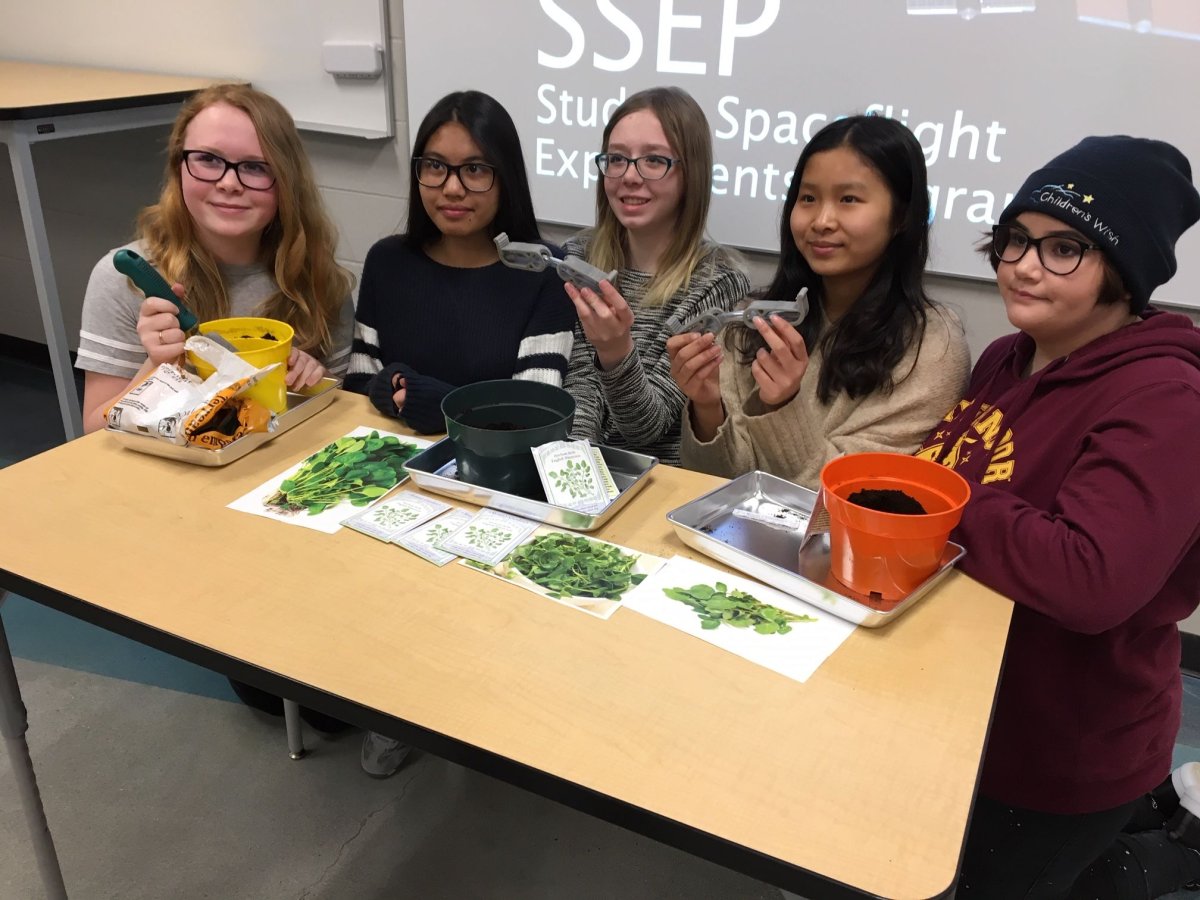A group of Edmonton students has embarked on an amazing opportunity. The five David Thomas King School students have earned a chance to have their experiment carried out on the International Space Station.

The students’ experiment was selected as part of the Student Spaceflight Experiments Program (SSEP).
“It’s such an exciting opportunity for them, all across the board,” David Thomas King School Grade 9 teacher Kelsey Wasylenki said. “We’re excited here at school, they’re excited, their parents are excited. It’s a really big deal.”
“We just worked so hard together and now we’re inseparable,” David Thomas King School Grade 9 student Lauren Clement said.
READ MORE: Edmonton students compete to have their science project head to International Space Station
The students have been researching, writing and fine-tuning micro-gravity experiment proposals since September. Their proposal focused on the difference between the germination of watercress seeds in space compared to on Earth.
“We did a lot of research on plants that were easy to grow super full of nutrients that would benefit the astronauts the best,” Clement said.
They submitted their work for evaluation in December, and SSEP officials selected it as the winning project. Their experiment will be carried out on the International Space Station and the students will do the same on Earth.
“When the sample comes back from the International Space Station they’ll be able to look at the difference between the watercress and say, ‘Here’s what happened on Earth with gravity, here’s what happened on the International Space Station with micro-gravity. What are our similarities, what are our differences and what conclusions can we draw?'” Wasylenki said.
READ MORE: University of Alberta space team receives funding to launch second satellite
The Edmonton students will also have to make adjustments to their original proposal based on recommendations from SSEP officials.
The experiment will be launched in the spring of 2019.








Comments